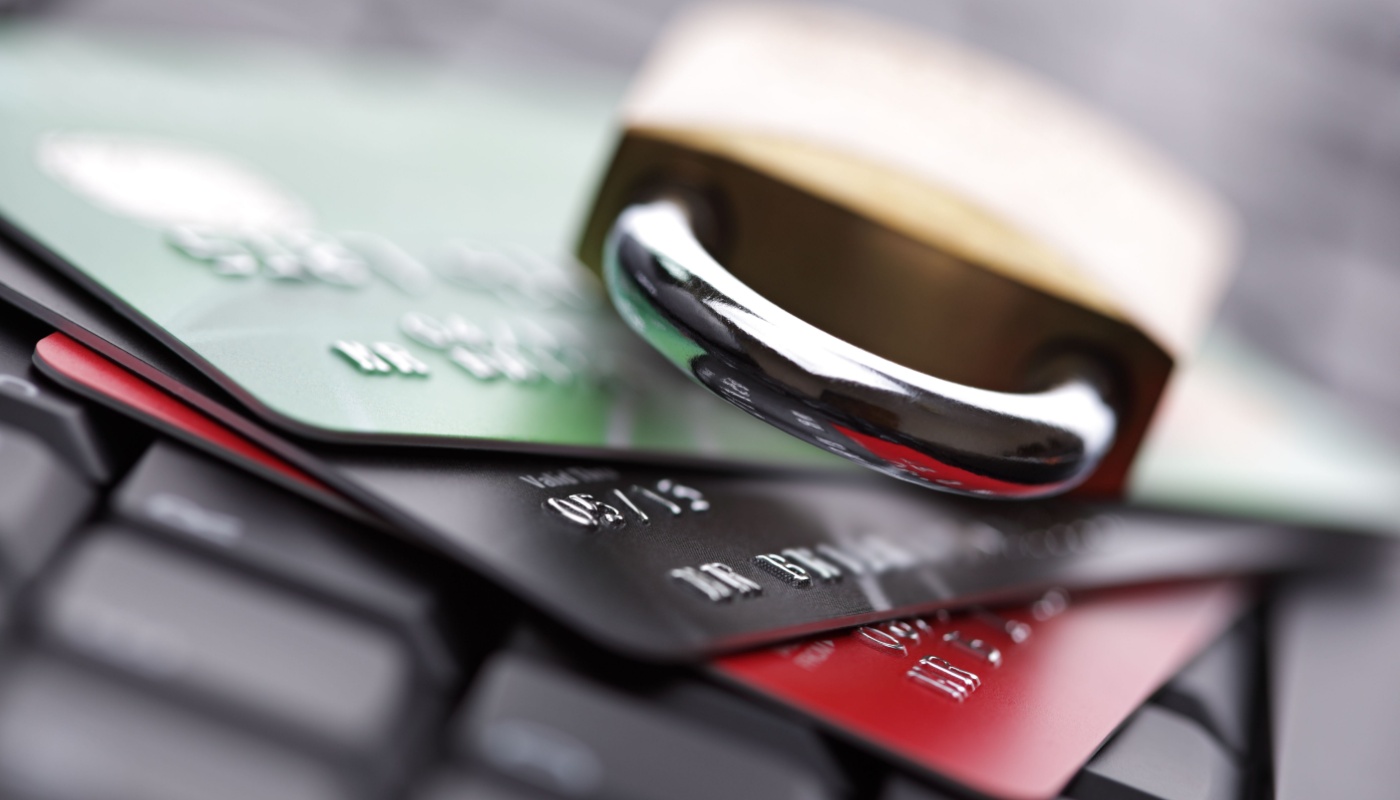
News writer
When you win the lottery, you may suddenly find yourself at the center of everyone's attention, particularly people you do not even know. You may suddenly find yourself bombarded by requests for money from strangers. You may even find that random people claim that they are lost family members, all because they want to get their hands on some of your winnings. This makes you an extra vulnerable target to identity theft.
According to the National Council on Identity Theft Protection, there is an identity theft case every 22 seconds. This type of crime is rapidly increasing due to the increasing range of identity theft methods. The median loss for fraud victims is $500, but often the loss is much higher. You could be the next victim if you don't know how to protect your personal information from criminals. Read on to learn about different types of identity theft and how to prevent them.
Types of identity theft
You might be surprised to learn that there are many different ways that cybercriminals can steal your identity. Here are some of the most common to watch out for.
Account Takeover Fraud
Account Takeover Fraud (ATO) happens when an identity thief gains access to your bank account or credit accounts without your permission. This can often happen without your knowledge. It can also happen to your email, social media, or store accounts. Cybercriminals are able to do this by acquiring your login details through hacking, phishing, data breaches, or malware attacks. If someone takes over your accounts, they could withdraw or transfer money, use your ID to open other lines of credit, make fraudulent purchases, or find their way into your other accounts. The best way to prevent this is not only to create strong passwords but also, whenever possible, to utilize multifactor authentication to protect your personal credentials.
Debit or credit card fraud
If someone has stolen your debit or credit card, the thief could withdraw your cash and run up high credit on your account. Cancel your cards as soon as you realize they have been stolen. Contact your bank or credit card company immediately and let them know. Check your bank and credit statements. If you see any unauthorized withdrawals or charges, dispute them with your bank or credit card company as soon as possible. Always be aware of where your cards are. Never carry your PIN with your debit or credit card.
Social Security Number identity theft
Your Social Security Number is very valuable to identity thieves. They could use it to claim government benefits in your name. They could also sell the information for profit on the dark web. Never carry your SSN with you, and never give out the information to anyone over the phone. Be wary of callers posing as representatives from the Social Security Administration. Real representatives will never ask for your SSN over the phone. If you receive any documents through the mail that contain your SSN, always shred them before throwing them away.
Driver's license identity theft
If a criminal can get hold of your driver's license, they will have access to your name, date of birth, address, and license number. This information can be very useful to thieves because they can use it to open credit accounts in your name. Keep your license in a safe place and never reveal this information.
Tax identity theft
Text identity theft happens when a criminal files a tax return in your name in order to collect your tax refund. Sometimes, tax identity theft can go unnoticed until you attempt to file your legitimate return. If you receive calls or emails from the IRS that ask for your personal information, demand payment for overdue taxes, or request your bank account number so that you can receive a refund, do not share any of this information. The IRS will never call you or email you without notifying you first by regular mail.
Senior identity theft
Identity thieves often target seniors by posing as a representative from a bank, credit card company, drug company, or social security agency. When they call or email, they will sound very convincing and ask for personal information such as an SSN or password. Warn your loved ones about these scams and tell them how to recognize and report fraudulent calls or phishing scams.
Medical identity theft
Sometimes, cybercriminals use your personal information to receive medical services in your name, and then you get stuck with the bill. Medical identity thieves can also use your personal information to file a fraudulent medical insurance claim. Check your medical bills and insurance statements and look for charges for office visits, lab work, imaging, prescriptions, or medical equipment that you have not received.
Home title fraud
If an identity thief gets their hands on your property title, they may use it to transfer the ownership of your home to themselves. They could also use your home equity to take out other lines of credit or loans that are impossible for you to pay back. Always keep your home title in a safe place. If you suddenly begin receiving mail at your address in someone else's name or your mortgage or tax bills are not arriving on time, these could be signs that someone has got your property type information.
Passport fraud
Your passport number is another very valuable piece of information for identity thieves. It can be used to create falsified travel documents or sold for profit on the dark web. Always keep your passport safe when you're at home and when you're traveling; do not carry it around with you. Instead, carry a photocopy of your passport ID page.
Internet of Things identity theft
Keeping all your smart devices connected to each other can make identity theft easier for hackers if you don't protect them properly. Make sure that all your home internet network is secure and all your internet-connected devices are protected with strong passwords.
Employment fraud
If you see online job postings that sound too good to be true, maybe they are. Red flags our postings that promise large amounts of money for very little work. Once you apply, a scammer may require you to buy training materials or supplies such as a laptop. They may write you fraudulent checks to pay for these items or charge your credit card without your permission. Before you apply for a job with a company you've never heard of, check employee reviews and the Better Business Bureau to see if there have been any complaints made.
How to protect yourself from identity theft
The best way to begin protecting yourself from identity theft is to be aware of the different types of scams and fraudulent practices. Following these tips will also help keep your identity safe:
Protect your SSN
Do not carry your SSN card around with you. Always keep it in a safe place at home. Avoid entering this information into any websites. Destroy all mail containing your SSN before you throw it out.
Beware of phishing scams
Outsmart scammers who try to coerce you into giving them your personal information. Hang up the phone straight away. You can find more details on how to detect and prevent falling for scams on our Scam Prevention page. You can also report phishing emails to the Anti-Phishing Working Group.
Make your passwords hackproof
Once identity thieves get their hands on your passwords, they have the keys to open many doors to your other personal information. Strengthen your passwords now before it's too late. Don't use obvious passwords. The safest passwords have at least eight characters, including upper and lowercase letters and symbols. Don't use the same password for multiple accounts. If you cannot remember your passwords, store them in a safe place that only you can access.
Don't over-share on social media
Be wary of the type of information you share on your social media. Do not reveal your home address, the names of your family members, or birth dates. Cybercriminals can use this information for account theft and other fraudulent practices.
Protect your smartphone and computer
Shield your information on your smart devices using firewalls, spyware, malware, and virus protection software, and make sure to update it regularly. Only download software from sites you know you can trust. Avoid clicking on links in ads, pop-up windows, or spam emails.
Shop safely online
Before you make any purchases online, be sure to check out the website before you enter your credit or debit card number or any other personal information. Check out the website's privacy policy and see if you can find ways to opt out of information sharing. If you can't find a privacy policy on the website, avoid that site, as it is probably not legitimate. Only enter your personal information on secure web pages with “https” in the address bar. Also, look out for a padlock symbol at the bottom of the browser window. These are indications that your personal information will be encrypted, which protects it from hackers.
Always check your statements
Whether they're bank statements or credit card bills, always check them as soon as you receive them to make sure that you do not have any unauthorized transactions. If your statement or credit card bill does not come on time, contact the bank or the credit card company straight away since this could mean that someone has changed your contact information to hide their fraudulent activity.
Identity thieves can strike when you least expect it. Do not take identity protection for granted. Make sure all your passwords and security measures are strong and up-to-date. The more you do to protect your personal information, the more difficult a target you will be for identity thieves and scammers.





















Comments